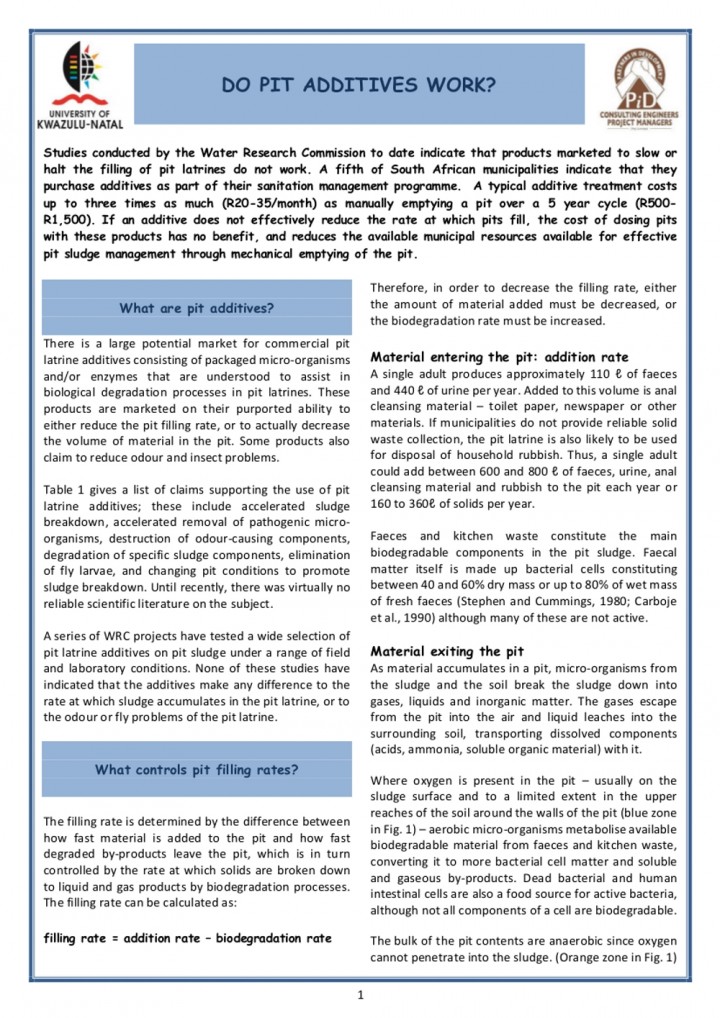
Published in: 2012
Pages: 4
Publisher:
Water Research Commission (WRC), University of Kwazulu-Natal, Partners in Development (PiD), South Africa
Author:
Foxon, K., Still, D.
Uploaded by:
danijela milosevic
Partner profile:
common upload
14519 Views
271 Downloads
Content - Summary
Studies conducted by the Water Research Commission to date indicate that products marketed to slow or halt the filling of pit latrines do not work. A fifth of South African municipalities indicate that they purchase additives as part of their sanitation management programme. A typical additive treatment costs up to three times as much (R20-35/month) as manually emptying a pit over a 5 year cycle (R500- R1,500). If an additive does not effectively reduce the rate at which pits fill, the cost of dosing pits with these products has no benefit, and reduces the available municipal resources available for effective pit sludge management through mechanical emptying of the pit.
To date, no additives have been proven effective and the presence of the necessary bacteria in the pit already
suggests that it is unlikely that an additive will ever enhance processes already happening in typical pits in a
significant way. However, the biology and dynamics of pits are complex, and should a product be developed which significantly impacts the filling rate of pits, it would be of enormous significance, reducing the costs and health risks associated with manual pit emptying.
The assumption driving the development of pit additives is that digestion is not already occurring as efficiently as
it could be in the pit. But pits already contain many of the micro-organisms needed to break down sludge and these metabolise the sludge naturally to the extent that the conditions of the pit allow. Additives that are dosed
to the pit will be limited by the same conditions experienced by the micro-organisms originating from faeces or the surrounding soil.
The main reason why pit additives do not change the pit filling rate is that the quantity of bacteria introduced to
the pit by dosing additives is insignificant compared to the number already present in the faecal sludge. Similarly, while some additives operate on the logic of adding more nutrients to the sludge to feed bacteria and encourage their growth, faecal sludge is already rich in nutrients.
Bibliographic information
Foxon, K., Still, D. (2012). Do pit additives work?. Water Research Commission (WRC), University of Kwazulu-Natal, Partners in Development (PiD), South Africa
Filter tags
English Practitioners Sub-Saharan Africa















